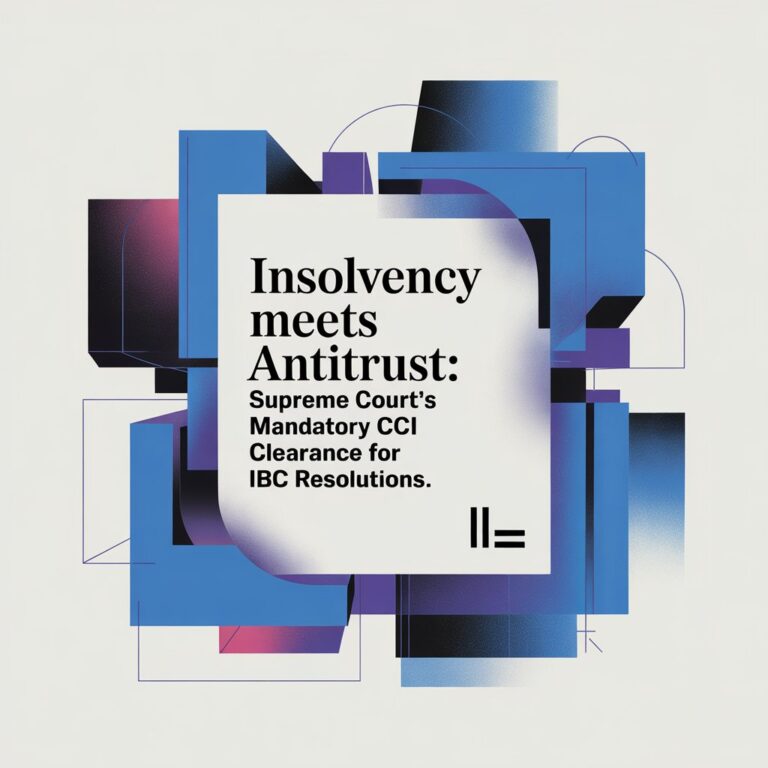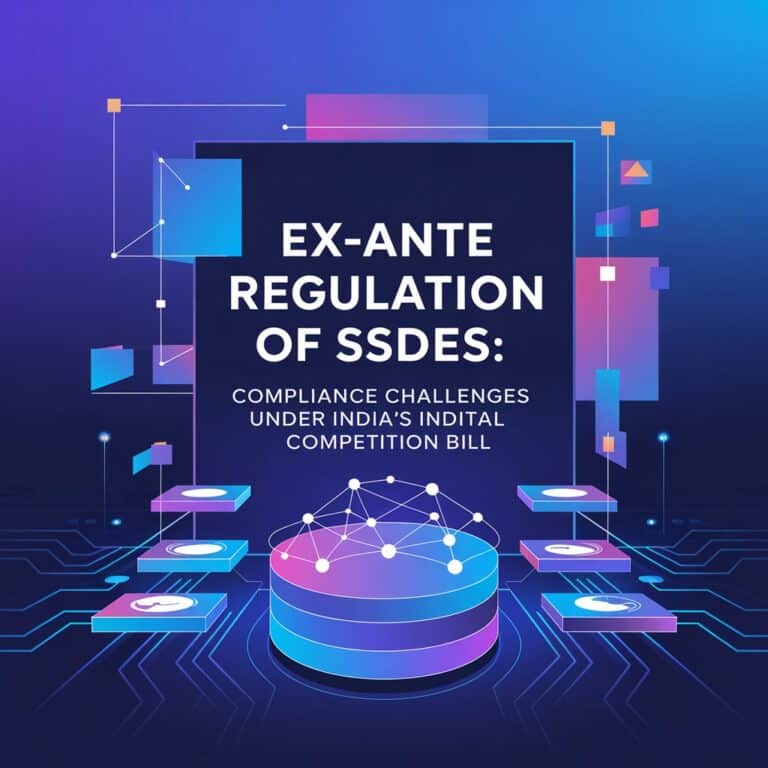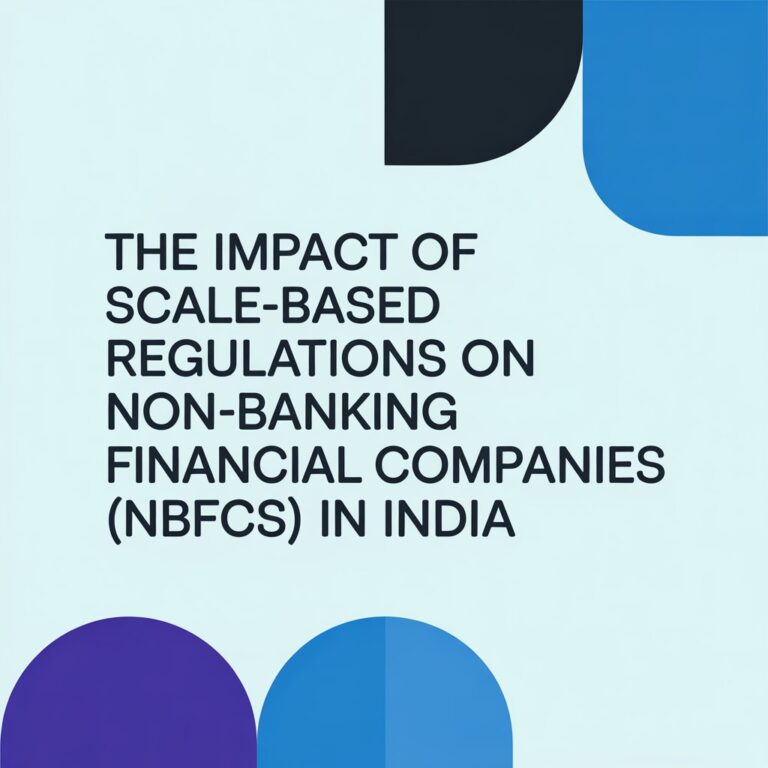Legal Blogs
legal blogs Directory
Corporate Governance Best Practices in India
Commercial Dispute Resolution in India
Ad Hoc Arbitration: A Comprehensive Guide
Tax Implications in Shareholders’ Agreements
Legal Due Diligence Guide in India
Decoding Fintech Regulations in India
Overview of Banking Regulation Act, 1949
Ultimate Guide to Share Purchase Agreements
Complete Guide to Anti-Dilution Clauses
Term Sheets in India: Complete Guide (2024)

Resolving Shareholder Deadlocks: Recent NCLT Rulings in India
Introduction Shareholder deadlocks pose a formidable challenge to corporate governance, particularly in companies with equal or closely held shareholding structures. When shareholders cannot agree on critical decisions, the resulting stalemate can paralyze operations, undermine investor confidence, and threaten the company’s long-term viability. In India, the National Company Law Tribunal (NCLT)

Cross-Border Arbitration in 2025: Adapting to India’s Changing Legal Environment
Drafting the Arbitration Clause in a Contract in Cross-Border Transactions Careful drafting of arbitration clauses in cross-border contracts is paramount under Indian law. Parties must explicitly define the seat of arbitration, the venue (if different for hearings), and the governing law of the contract to avoid jurisdictional ambiguities. Indian courts

Insolvency Meets Antitrust: Supreme Court’s Mandatory CCI Clearance for IBC Resolutions
Introduction The convergence of insolvency and competition laws in India has been thrust into the spotlight by a landmark Supreme Court ruling delivered on January 29, 2025, in the case of Independent Sugar Corporation Ltd. v. Girish Sriram Juneja, 2025 INSC 124. This decision, passed by a 2:1 majority, establishes

Ex-Ante Regulation of SSDEs: Navigating Compliance Challenges Under India’s Digital Competition Bill, 2024
Introduction India’s digital economy is experiencing a transformative surge, positioning the nation as a global leader in digital innovation and connectivity. With a population exceeding 1.4 billion, India boasts over 820 million internet users, making it one of the largest digital markets worldwide. This vast user base is driven by

Microfinance Borrowing Limits in India: Preventing Over-Indebtednes
Introduction Microfinance has revolutionized financial inclusion in India, providing small, collateral-free loans to millions of low-income individuals who are excluded from traditional banking systems. These loans empower people to start small businesses, meet household needs, or invest in education, fostering economic growth and poverty alleviation. However, the rapid expansion of

The Impact of Scale-Based Regulations on Non-Banking Financial Companies (NBFCs) in India
Understanding Non-Banking Financial Companies (NBFCs) Non-Banking Financial Companies (NBFCs) in India are financial institutions registered under the Companies Act, 2013 (earlier under the Companies Act, 1956) that provide a range of financial services similar to banks but do not hold a banking license. The Reserve Bank of India (RBI) defines

Inverted Liability Structures: Mitigating Risks in SPAC-Driven Indian Reverse Mergers
Introduction The Indian capital markets are increasingly exploring alternative mechanisms for private companies to access public funding and liquidity beyond the conventional initial public offering (IPO) route. Among these, Special Purpose Acquisition Companies (SPACs) and reverse mergers have attracted attention due to their potential to expedite public listings and reduce

Blockchain Patents: Protecting Innovation in Decentralized Finance (DeFi)
Introduction to Decentralized Finance (DeFi) and Blockchain Patents What is Decentralized Finance (DeFi)? Decentralized Finance, commonly known as DeFi, represents a paradigm shift in the financial sector by utilizing blockchain technology to create an open, permissionless financial ecosystem. Unlike traditional financial systems that rely heavily on centralized intermediaries such as

Regulating Decentralized Exchanges (DEX): India’s Approach to Crypto Compliance
Introduction Decentralized exchanges (DEXs) have emerged as a transformative force in the cryptocurrency ecosystem. Unlike traditional centralized exchanges, DEX platforms enable users to trade digital assets directly with each other via blockchain smart contracts, without an intermediary institution holding custody of funds. By design, this decentralized crypto exchange model prioritizes

Digital Lending Platforms: Legal Risks Under RBI’s Revised Guidelines
RBI’s Revised Digital Lending Guidelines – Overview Applicability: Regulated Entities, NBFCs, and Lending Service Providers The Guidelines on Digital Lending, issued by the Reserve Bank of India (RBI) on September 2, 2022, under Section 35A of the Reserve Bank of India Act, 1934, regulate digital lending platforms in India.

Corporate Liquidation in India: Breaking Down the IBBI Amendments
Introduction to Corporate Liquidation in India What is Corporate Liquidation in Corporate Accounting? Corporate liquidation in accounting refers to the formal process of winding up a company’s affairs. This process involves converting the company’s assets into cash to settle outstanding liabilities and, ultimately, closing the company. In the context of

Impact of Supreme Court Decisions on Institutional Arbitration
Understanding Institutional Arbitration in India Definition and Key Features of Institutional Arbitration Institutional arbitration is a dispute resolution process administered and supervised by specialized arbitral institutions according to predefined arbitration rules. It involves comprehensive administrative support for the appointment of arbitrators, fixing arbitrators’ fees, managing procedural timelines, providing arbitration venues,

Regulatory Framework for Initial Public Offerings (IPOs) in India
What Is an Initial Public Offering (IPO)? Initial Public Offering Meaning Under Indian Law Under Indian legislation, an Initial Public Offering (IPO) signifies the process whereby a company issues its shares to the public for the first time. As per the Companies Act, 2013, specifically under Section 23, a public

Taxation on Digital Transactions & E-Commerce in India
Understanding the Impact of GST on India’s Digital Economy 1. Statutory Framework: Governing E-commerce Taxation in India The taxation of e-commerce transactions in India is governed by a multi-faceted statutory framework comprising direct and indirect tax laws. This framework ensures that e-commerce operators and participants comply with their tax obligations.

Corporate Governance Best Practices in India
Introduction Corporate governance in India is defined by a robust legal framework that ensures transparency, accountability, and ethical management. The evolution of governance practices has been driven by statutory reforms and regulatory oversight aimed at protecting stakeholder interests and strengthening corporate performance. Core legislation, including the Companies Act, 2013 and

Transfer Pricing Regulations for Related-Party Transactions
Understanding Transfer Pricing in Related-Party Dynamics Transfer Pricing Regulations govern how multinational enterprises (MNEs) price transactions between related entities in different tax jurisdictions. These regulations aim to prevent tax avoidance by ensuring that profits are not artificially shifted to low-tax jurisdictions. This article provides a comprehensive analysis of transfer

Union Budget 2025 | Corporate Perspective and Overview
The Union Budget 2025-26, presented by the Finance Minister Nirmala Sitharaman, outlines the government’s financial plan for the upcoming fiscal year. This report aims to provide a detailed analysis of the budget from a corporate perspective, delving into its key proposals, implications for various sectors, and significant changes from the

Implementation of the Digital Personal Data Protection Act, 2023 (DPDPA)
In today’s digital era, the protection of personal data has become paramount. With the exponential growth of data generation and processing, safeguarding individuals’ privacy rights is critical. The Digital Personal Data Protection Act, 2023 (DPDPA) represents a significant stride towards establishing a robust data protection framework in India. This guide

Mastering Liquidated Damages: Essentials for Drafting and Enforcement
Liquidated damages clauses are a crucial component in contract law, providing a predetermined amount of money that one party must pay to the other if a breach occurs. Entering a contract involves various risks, including the possibility of breaches that can lead to financial losses. Determining the exact number of damages

Vertical and Horizontal Agreements in Indian Competition Law
Key Insights into Vertical and Horizontal Agreements The Competition Act, 2002 (“the Act”) forms the foundation of competition law in India, aiming to prevent practices that cause or are likely to cause an appreciable adverse effect on competition (AAEC) in India. The Act prohibits anti-competitive agreements, abuse of dominant positions

External Commercial Borrowings in India: A Comprehensive Legal Analysis
External Commercial Borrowings (ECBs) have become a crucial funding source for Indian businesses seeking to expand operations, invest in new projects, and manage their financial needs. This article provides a comprehensive legal analysis of the ECB framework in India under the jurisdiction of the Reserve Bank of India (RBI). It

SEBI (Listing Obligations and Disclosure Requirements) Regulations, 2015: An Analysis
The Securities and Exchange Board of India (SEBI) (Listing Obligations and Disclosure Requirements) Regulations, 2015 (hereinafter referred to as “LODR Regulations”) serve as a comprehensive legal framework governing listed entities in India. Enacted by SEBI, the regulatory body for the securities market in India, the LODR Regulations aim to promote

What is Information Utility Under IBC | Complete Guide
The Insolvency and Bankruptcy Code, 2016 (IBC) revolutionized India’s insolvency regime by introducing Information Utility (IUs). These entities play a crucial role in addressing information asymmetry, a major obstacle to efficient insolvency resolution. This comprehensive guide delves into the intricacies of information utilities under IBC, exploring their legal framework, operational

Jurisdiction in International Law | Complete Guide
Understanding jurisdiction in international law is paramount for understanding the complexities of global legal interactions. This comprehensive guide delves into the core principles governing jurisdiction, its implications for India, and its practical application for general counsels, law students, and lawyers dealing with international legal issues. Introduction: The Foundation of International

Process of Allotment of Shares Under Company Law in India
Understanding Allotment of Shares and its Significance Understanding the process of allotment of shares under company law is fundamental to corporate finance and governance in India. Governed primarily by the Companies Act, 2013, this process is crucial for establishing a company’s capital structure and shareholder relationships. This article provides a

Statutes Affecting Jurisdiction of Courts in India
Understanding the statutes affecting the jurisdiction of courts in India is fundamental for legal practitioners, law students, and anyone exploring the complexities of the Indian legal system. Jurisdiction, the power of a court to hear and decide a case, is determined by a complex interplay of constitutional provisions and various

Share Buyback Law in India | Guidelines | Amendments (2024)
Understanding the intricacies of share buyback law in India is paramount for corporate business owners, high-scale investors, and legal professionals alike. Share buybacks, the repurchase of a company’s own shares from the open market or existing shareholders, represent a powerful financial tool with significant implications for a company’s capital structure,

ESG Compliance in India: A Comprehensive Guide for Businesses
Introduction The significance of Environmental, Social, and Governance (ESG) compliance in India is rapidly increasing as businesses recognize the need for sustainable practices. ESG regulations serve as a framework for companies to adopt ethical and responsible behaviors that not only protect the environment but also enhance social welfare and corporate

Construction Contracts in India: A Comprehensive Guide
Introduction: The Importance of Robust Construction Contracts in India Construction projects in India, while offering significant opportunities, are complex undertakings. A robust contract serves as the project’s roadmap and rulebook, minimizing disputes and protecting the interests of all stakeholders. Without a clear, legally sound agreement, misunderstandings and disagreements are almost

Impact of New Labour Codes on Employers in India
Introduction India’s business landscape has been significantly reshaped by the introduction of four new labour codes: the Code on Wages, 2019; the Code on Social Security, 2020; the Occupational Safety, Health and Working Conditions Code, 2020; and the Industrial Relations Code, 2020. These codes, replacing approximately 29 existing statutes, aim

Commercial Dispute Resolution in India
Understanding Commercial Dispute Resolution in India and the Commercial Court System What is a Commercial Dispute Under Indian Law? Under the Commercial Courts Act, 2015, a commercial dispute is defined as a dispute arising from ordinary transactions of merchants, bankers, financiers, and traders. This includes disputes related to mercantile documents,

Essential Elements of Arbitration Agreement in India
Understanding Arbitration Agreements in India Definition and Legal Framework An arbitration agreement is a contract between parties to submit present or future disputes to arbitration instead of litigation. In India, arbitration agreements are governed by the Arbitration and Conciliation Act, 1996 (as amended). Section 7 of the Act defines an

Arbitration Agreements in India: A Comprehensive Guide
Introduction Resolving commercial disputes in India can be challenging. However, a carefully crafted arbitration agreement offers a more efficient and cost-effective alternative to lengthy court proceedings. This comprehensive guide examines the essential aspects of arbitration agreements in India, providing a clear understanding of how to draft effective clauses, enforce agreements,

Ad Hoc Arbitration: A Comprehensive Guide
Introduction Ad hoc arbitration is a form of dispute resolution that offers parties a high degree of control and flexibility. Unlike institutional arbitration, where a third-party organization manages the process, ad hoc arbitration allows parties to tailor the proceedings to their specific needs. This makes it an attractive option for

Appointment of Arbitrators in India | Complete Guide
Introduction Resolving commercial disputes through arbitration is a widely accepted and preferred method in India. Arbitration offers a faster and more flexible alternative to traditional court proceedings, allowing parties to tailor the process to their specific needs. At the heart of this process are arbitrators, individuals chosen to act as

Enforcement of Foreign Arbitral Awards in India: A Guide
Introduction The enforcement of foreign arbitral awards in India is a critical aspect of international trade and investment. It refers to the process by which a foreign arbitral award, made in a country other than India, can be recognized and enforced by Indian courts. This topic is of paramount importance

Arbitrability of Disputes in India: Complete Guide
Introduction The arbitrability of disputes under Indian Arbitration law is a crucial concept for businesses and individuals entering into contracts. It determines whether a dispute can be resolved through arbitration, a faster and more flexible alternative to traditional court proceedings. While India’s legal framework generally encourages arbitration, certain disputes are deemed non-arbitrable

Seat vs. Venue of Arbitration in India | Difference | Cases
Introduction Navigating the world of arbitration in India can be complex, especially when it comes to understanding the distinction between the seat vs. venue of arbitration. These two concepts are often confused, but they have significant legal and practical implications for parties involved in arbitration proceedings. This comprehensive guide will

Franchise Laws in India: A Comprehensive Guide
What is Franchising and What are Franchise Laws in India? Franchising is a popular business model in India where a franchise agreement allows an individual or entity (the franchisee) to operate a business using the established brand name, trademarks, and business systems of another company (the franchisor). This arrangement enables

Private Equity Investments in India – Regulatory Overview
Introduction Private Equity (PE) investments represent a critical component of India’s financial landscape, offering a vital source of capital for companies across various stages of their lifecycle, from early-stage startups to well-established entities. PE firms typically invest in companies with high growth potential, providing not only capital but also strategic
